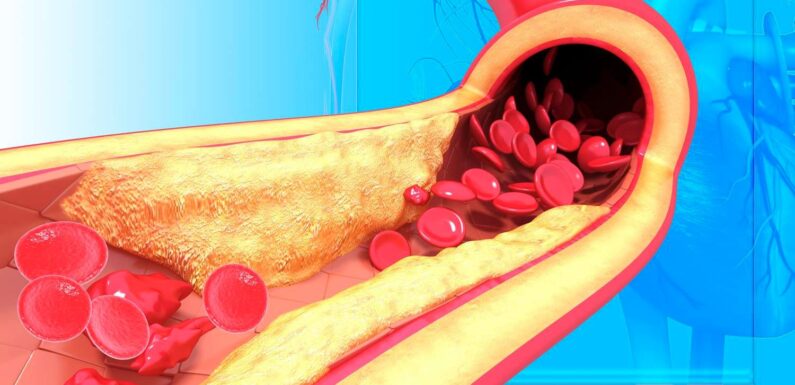
Atherosclerosis is a serious issue. It causes a buildup of arterial plaque. Heart disease and other cardiovascular problems have it as a key cause. Secondly, several risk factors lead to atherosclerosis. That applies to both smoking and inactivity. Many times, genetics is ignored. We are learning more about the genetics of FH and how to reduce this risk as a result.
Understanding FH
Firstly, a hereditary condition called familial hypercholesterolemia (FH). It causes elevated blood LDL cholesterol levels. LDL cholesterol is called “bad” cholesterol. That is because it transports cholesterol to the arteries. There it may build plaque. Autosomal dominant inheritance gives offspring a 50% chance of acquiring FH from one parent.
Secondly, mutations in cholesterol-regulating genes include the LDL receptor (LDLR), apolipoprotein B (APOB), and proprotein convertase subtilisin/kexin type 9 (PCSK9) genes cause FH. Therefore, these genes are essential for LDL cholesterol clearance.
The Link FH and Atherosclerosis
Chronically high LDL cholesterol in FH increases the risk of Atherosclerosis and its consequences. FH and atherosclerosis are linked:
High LDL cholesterol
FH impairs LDL cholesterol clearance. Therefore, FH patients have elevated LDL cholesterol, which contributes to plaque development.
Plaque Formation Increased
FH individuals with high LDL cholesterol deposit cholesterol faster in artery walls. Therefore, excess cholesterol infiltrates artery endothelial cells, causing inflammation and immune cell recruitment.
Foam Cell Making
Foam cells arise when macrophages ingest oxidized LDL cholesterol in artery walls. These foam cells are essential to atherosclerotic plaques.
Plaque Development
Over time, foam cells, smooth muscle cells, and other substances create atherosclerotic plaques. So, plaque may restrict arteries, limiting blood flow.
Complications
Plaque rupture may cause blood clots that cause heart attacks or strokes, depending on the artery.
Managing Familial Hypercholesterolemia
FH is inherited and cannot be cured, although it may be controlled to lower atherosclerosis risk and consequences. Therefore, these are the FH management strategies:
Drugs to Lower Cholesterol
FH patients typically need LDL-lowering medicines. Statins, liver-directed cholesterol inhibitors, are routinely administered. In brief, other drugs include PCSK9 inhibitors and bile acid sequestrants.
A change in lifestyle
A heart-healthy lifestyle is vital for FH management. Nevertheless, this involves eating low-cholesterol, exercising, stopping smoking, and keeping a healthy weight.
Monitor regularly
FH patients should have frequent blood tests to evaluate cholesterol and treatment efficacy. Regular doctor visits are essential.
Genetic Advice
Genetic counseling may assist FH patients and their families understand the genetics of the illness and make family planning options.
Apheresis Lipoprotein
In severe FH or when other therapies fail, lipoprotein apheresis may be recommended. This technique removes blood LDL cholesterol.
Earlier Intervention
FH management requires early diagnosis and treatment. Detecting and treating FH in childhood or adolescent may prevent or postpone atherosclerosis.
Family Screening
FH is inheritable, therefore family members should have cholesterol tests to determine risk and start prevention.
Psychological Effect
A lifelong hereditary illness may influence afflicted people and their families psychologically and emotionally. Counseling and support are helpful.
Medication Cost
Newer cholesterol-lowering drugs like PCSK9 inhibitors may be pricey, making them difficult for certain people and healthcare systems to afford.
Conclusion
In summary, the hereditary ailment familial hypercholesterolemia raises LDL cholesterol levels, increasing the risk of atherosclerosis and cardiovascular disease. Understanding the relationship between FH and atherosclerosis emphasizes early diagnosis and treatment. FH cannot be cured, however therapy and lifestyle changes may lower cholesterol and decrease atherosclerosis risk. Fast diagnosis, frequent monitoring, and genetic counseling are necessary to manage FH and reduce its cardiovascular effects.

